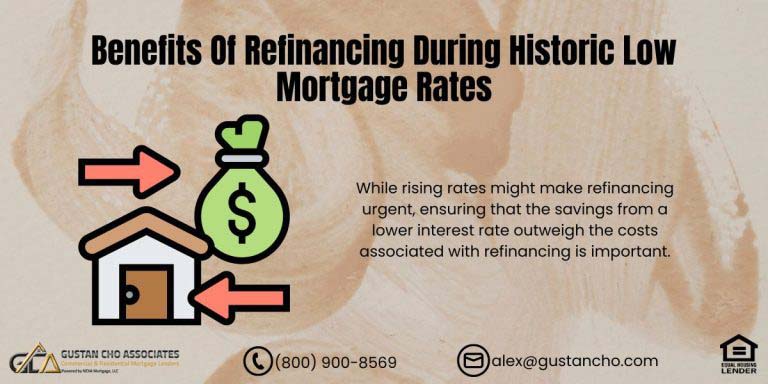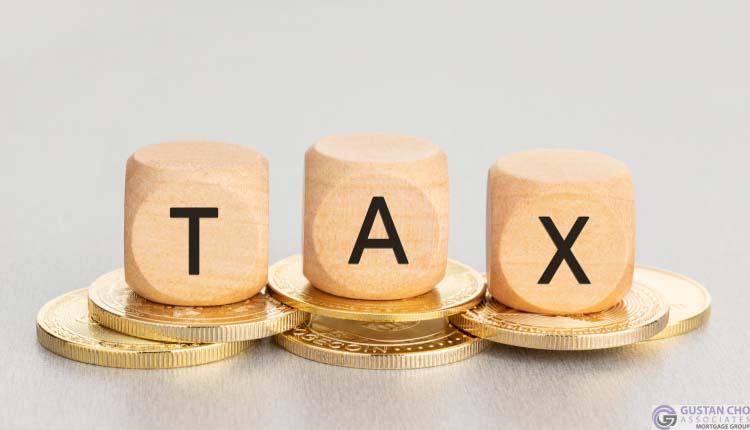Social Security Income for Mortgage: How to Use It to Buy a Home
If you’re living on Social Security income and think you can’t get a mortgage, you’re not alone. But here’s the truth: you can absolutely qualify for a mortgage using Social Security income. Whether you’re retired, semi-retired, or on disability, there are loan programs available that make homeownership possible. In this guide, we’ll break it all down in plain English.
Can You Use Social Security Income for Mortgage?
Yes! Social Security income counts as qualified income for a mortgage. It doesn’t matter if you’re receiving retirement, disability (SSDI), or Supplemental Security Income (SSI)—you can use it to qualify. Mortgage lenders need to verify that the income is steady and likely to continue.
The subprime and real estate meltdown of 2008 has affected many Americans, especially retired folks, where many filed for bankruptcy or lost their homes. Many homeowners who counted on the equity they built up on their homes saw their equity vanish. Many held mortgage balances that were higher than the value of their homes.
This is great news for retirees and those on fixed incomes who thought their dream of homeownership was out of reach.
Buying your first home? We make mortgage qualification easy!
Apply now and take the first step toward homeownership
What Do Lenders Need to Verify Social Security Income?
To use Social Security income for mortgage qualification, you’ll need a few simple documents:
- Social Security award letter (SSA-1099)
- Recent bank statements showing direct deposits
- IRS Form 1099 (for previous year income proof)
- Proof of continuance (usually, Social Security is considered permanent unless it has an expiration date)
If you’re using Supplemental Security Income (SSI), make sure you provide documents showing that it’s regular and ongoing.
How Does Social Security Income Help You Qualify?
Lenders use your income to figure out if you can afford the mortgage. They look at something called your debt-to-income ratio (DTI). The lower your monthly debts compared to your income, the better.
Good news! You can use your social security income for mortgage.
Lenders have the ability to boost this income figure, which means they might consider it higher than your actual monthly earnings. You can increase your chances of getting a mortgage, especially if you use social security as your main income. Therefore, if you’re thinking about purchasing a home, keep in mind that your social security income can be helpful!
What Does “Grossing Up” Mean?
If your Social Security income is not taxed, lenders allow you to increase the amount they use to qualify you. This helps you qualify for a larger mortgage amount.
Here’s how it works:
- FHA loans allow a 15% gross-up
- Conventional loans (Fannie Mae/Freddie Mac) allow a 25% gross-up
- VA and USDA loans also allow a 25% gross-up
Example:
When considering social security income for mortgage applications, it’s important to understand how different types of loans calculate qualifying income. If you get $1,000 monthly from Social Security, the FHA lets you bump that up by 1.15, so your qualifying income would be $1,150. When you look at conventional, VA, or USDA loans, they use a multiplier of 1.25. This means you need to show a qualifying income of $1,250. This increase in qualifying income can greatly help if you have a tight budget. It may allow you to qualify for a larger loan.
Credit challenges? High DTI? We have loan options for you!
See if you qualify for a mortgage today!
Which Mortgages Work Best with Social Security Income?
At Gustan Cho Associates, we specialize in helping borrowers with all types of income, including Social Security. Here are the best programs for people using Social Security income for mortgage:
1. FHA Loans
FHA loans are popular among seniors or retirees who might have a tight budget or some credit challenges because they have pretty flexible requirements. To qualify for an FHA loan, you need a credit score of at least 580, but if you can put down a bigger deposit, that score can drop to 500. The down payment is only 3.5%, and they’re cool with a debt-to-income ratio of up to 56.9%. Plus, FHA loans let you include 15% of your Social Security income in your calculations, which really helps those who might have a hard time getting funding otherwise.
2. VA Loans (for eligible veterans)
VA loans are great for veterans because they make buying a home easier. One of the best features is that you don’t need a down payment, which reduces your initial costs. Plus, there’s no cap on debt-to-income (DTI) ratios for folks who have solid residual income, so it gives you more wiggle room if your finances aren’t exactly cookie-cutter. Another cool thing is that certain types of income can be grossed up by 25%. For veterans getting Social Security or VA disability income, this loan is a standout choice for anyone looking to buy a home.
3. USDA Loans
USDA loans have several benefits, especially for people living in rural areas, because they do not require a down payment. They also provide a 25% gross-up, which can help borrowers. While these loans have income limits, they can be very useful for fixed-income borrowers who need help financing their homes.
4. Conventional Loans
Conventional loans usually need a down payment of about 3% to 5% for first-time buyers, plus you can bump up your income by 25%. People who take out these loans should aim for a debt-to-income (DTI) ratio of around 45% to 50%. These loans are great for folks with decent credit who want to skip out on mortgage insurance for the long haul.
Can You Qualify for a Mortgage with Only Social Security Income?
Yes, you can. You don’t need to be working or have a pension. Social Security income alone can be enough if your debts are low and you meet the lender’s credit and down payment requirements.
Here’s a real-life example:
Jim is retired. He receives $1,000 a month in Social Security. He has no other income and no debts. With FHA, he can gross up his income to $1,150.
Using a 46.9% front-end DTI, lenders would allow a housing payment of about $539/month. That could easily qualify him for a $90,000–$100,000 mortgage, depending on taxes, insurance, and interest rate.
Does Your Credit Score Matter?
Many lenders usually have a cutoff for credit scores, but at Gustan Cho Associates, we’re fine with giving loans to folks with scores as low as 500 (thanks to FHA).
We also don’t have lender overlays, which are extra rules added by banks. We only follow the official guidelines from FHA, VA, USDA, and Fannie Mae/Freddie Mac.
Is Social Security Disability Income (SSDI) Accepted?
Yes. Social Security Disability Insurance (SSDI) counts just like retirement Social Security. If the award letter doesn’t show an expiration date, it’s usually considered likely to continue. You can gross it up the same way.
What About Supplemental Security Income (SSI)?
SSI is a need-based program that can be used to qualify for mortgages. The key is showing that it’s non-taxable and will continue. Some lenders may be more cautious with SSI, but Gustan Cho Associates works with all income sources.
How to Calculate Your Mortgage Budget Using Social Security
Step-by-step:
- Find your monthly Social Security income
- Multiply by 1.15 (FHA) or 1.25 (Conventional/VA/USDA)
- Add any other income (like part-time work or pension)
- Multiply total income by 46.9% (FHA front-end ratio) or use 45% for Conventional
- Subtract estimated taxes, insurance, and mortgage insurance
- The rest is what you can spend on principal and interest
Need help with this math? We’ll do it for you! Just call, text, or email us.
2025 Update: Why Now Is a Great Time to Buy
- Home prices have stabilized in many areas
- Rates have cooled slightly from 2023–24 highs
- FHA and Fannie Mae are working to make credit more accessible to fixed-income borrowers
- New scoring models (coming soon) will be more inclusive of non-traditional income
Don’t wait until prices and rates rise again.
Final Thoughts
Using Social Security income for mortgage approval is 100% possible. Whether you’re retired, disabled, or just living on a fixed income, we can help you buy a home. It starts with talking to the right loan officer who understands how to work with your income type.
Get Help Today
Call us at 800-900-8569 or email alex@gustancho.com to see how much home you qualify for using your Social Security income.
Even better? Apply online or text us for a quick pre-approval! Social Security income for mortgage doesn’t have to hold you back. At Gustan Cho Associates, we turn “no” into “yes.”
Don’t wait—see how much home you qualify for!
Get pre-approved for a mortgage today and start shopping with confidence.
Frequently Asked Questions About Social Security Income for Mortgage:
Q: Can I Use My Social Security Income for Mortgage Approval?
A: Yes, you can. As long as your Social Security income is steady and documented, lenders can use it to help you qualify for a mortgage.
Q: Do I Need to be Working if I Use Social Security Income for Mortgage?
A: No, you do not need a job. You can qualify using only your Social Security income, especially if your monthly debts are low.
Q: How do Lenders Verify Social Security Income for Mortgage?
A: They typically ask for your award letter, recent bank statements showing direct deposits, and IRS Form 1099 from the previous year.
Q: Can I Get a Mortgage with just Social Security Income?
A: Yes! Many borrowers qualify for a mortgage with only Social Security income. It just depends on how much you receive and your other monthly expenses.
Q: What does “Gross Up” Social Security Income for Mortgage Mean?
A: Grossing up means lenders can count more than your actual Social Security check—up to 15% more for FHA loans and 25% more for conventional, VA, and USDA loans.
Q: What Loan Programs Work Best When Using Social Security Income for Mortgage?
A: FHA loans are quite favored among borrowers who receive Social Security income. VA, USDA, and conventional loans can also be excellent options based on your credit and geographical area.
Q: Does Social Security Disability (SSDI) Count as Income for Mortgage?
A: Yes, SSDI can be used just like retirement income. As long as it’s ongoing and can be documented, it can help you qualify.
Q: Can I Use SSI (Supplemental Security Income) for Mortgage Approval?
A: Yes, SSI may be accepted. You’ll need to show it’s regular and non-taxable. Gustan Cho Associates can help you with the process.
Q: What if My Credit Score is Low, but I have Social Security Income for a Mortgage?
A: You can still qualify! Gustan Cho Associates offers FHA loans with credit scores as low as 500—many lenders can’t do that.
Q: How do I Figure Out How Much House I Can Afford with Social Security Income for Mortgage?
A: We can help you calculate that! But as a quick guide: gross up your income, subtract monthly debts, and apply the DTI limits (46.9% FHA or 45% conventional). Contact us, and we’ll send you the numbers.
This blog about “Social Security Income For Mortgage Lending Guidelines” was updated on June 24th, 2025.










